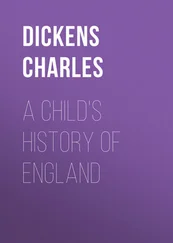Sheba Blake - A Child's History of England
Здесь есть возможность читать онлайн «Sheba Blake - A Child's History of England» — ознакомительный отрывок электронной книги совершенно бесплатно, а после прочтения отрывка купить полную версию. В некоторых случаях можно слушать аудио, скачать через торрент в формате fb2 и присутствует краткое содержание. Жанр: unrecognised, на английском языке. Описание произведения, (предисловие) а так же отзывы посетителей доступны на портале библиотеки ЛибКат.
- Название:A Child's History of England
- Автор:
- Жанр:
- Год:неизвестен
- ISBN:нет данных
- Рейтинг книги:3 / 5. Голосов: 1
-
Избранное:Добавить в избранное
- Отзывы:
-
Ваша оценка:
- 60
- 1
- 2
- 3
- 4
- 5
A Child's History of England: краткое содержание, описание и аннотация
Предлагаем к чтению аннотацию, описание, краткое содержание или предисловие (зависит от того, что написал сам автор книги «A Child's History of England»). Если вы не нашли необходимую информацию о книге — напишите в комментариях, мы постараемся отыскать её.
A Child's History of England — читать онлайн ознакомительный отрывок
Ниже представлен текст книги, разбитый по страницам. Система сохранения места последней прочитанной страницы, позволяет с удобством читать онлайн бесплатно книгу «A Child's History of England», без необходимости каждый раз заново искать на чём Вы остановились. Поставьте закладку, и сможете в любой момент перейти на страницу, на которой закончили чтение.
Интервал:
Закладка:
Three
England Under the Good Saxon, Alfred

ALFRED THE GREAT was a young man, three-and-twenty years of age, when he became king. Twice in his childhood, he had been taken to Rome, where the Saxon nobles were in the habit of going on journeys which they supposed to be religious; and, once, he had stayed for some time in Paris. Learning, however, was so little cared for, then, that at twelve years old he had not been taught to read; although, of the sons of KING ETHELWULF, he, the youngest, was the favourite. But he had - as most men who grow up to be great and good are generally found to have had - an excellent mother; and, one day, this lady, whose name was OSBURGA, happened, as she was sitting among her sons, to read a book of Saxon poetry. The art of printing was not known until long and long after that period, and the book, which was written, was what is called ‘illuminated,’ with beautiful bright letters, richly painted. The brothers admiring it very much, their mother said, ‘I will give it to that one of you four princes who first learns to read.’ ALFRED sought out a tutor that very day, applied himself to learn with great diligence, and soon won the book. He was proud of it, all his life.
This great king, in the first year of his reign, fought nine battles with the Danes. He made some treaties with them too, by which the false Danes swore they would quit the country. They pretended to consider that they had taken a very solemn oath, in swearing this upon the holy bracelets that they wore, and which were always buried with them when they died; but they cared little for it, for they thought nothing of breaking oaths and treaties too, as soon as it suited their purpose, and coming back again to fight, plunder, and burn, as usual. One fatal winter, in the fourth year of KING ALFRED’S reign, they spread themselves in great numbers over the whole of England; and so dispersed and routed the King’s soldiers that the King was left alone, and was obliged to disguise himself as a common peasant, and to take refuge in the cottage of one of his cowherds who did not know his face.
Here, KING ALFRED, while the Danes sought him far and near, was left alone one day, by the cowherd’s wife, to watch some cakes which she put to bake upon the hearth. But, being at work upon his bow and arrows, with which he hoped to punish the false Danes when a brighter time should come, and thinking deeply of his poor unhappy subjects whom the Danes chased through the land, his noble mind forgot the cakes, and they were burnt. ‘What!’ said the cowherd’s wife, who scolded him well when she came back, and little thought she was scolding the King, ‘you will be ready enough to eat them by-and-by, and yet you cannot watch them, idle dog?’
At length, the Devonshire men made head against a new host of Danes who landed on their coast; killed their chief, and captured their flag; on which was represented the likeness of a Raven - a very fit bird for a thievish army like that, I think. The loss of their standard troubled the Danes greatly, for they believed it to be enchanted - woven by the three daughters of one father in a single afternoon - and they had a story among themselves that when they were victorious in battle, the Raven stretched his wings and seemed to fly; and that when they were defeated, he would droop. He had good reason to droop, now, if he could have done anything half so sensible; for, KING ALFRED joined the Devonshire men; made a camp with them on a piece of firm ground in the midst of a bog in Somersetshire; and prepared for a great attempt for vengeance on the Danes, and the deliverance of his oppressed people.
But, first, as it was important to know how numerous those pestilent Danes were, and how they were fortified, KING ALFRED, being a good musician, disguised himself as a glee-man or minstrel, and went, with his harp, to the Danish camp. He played and sang in the very tent of GUTHRUM the Danish leader, and entertained the Danes as they caroused. While he seemed to think of nothing but his music, he was watchful of their tents, their arms, their discipline, everything that he desired to know. And right soon did this great king entertain them to a different tune; for, summoning all his true followers to meet him at an appointed place, where they received him with joyful shouts and tears, as the monarch whom many of them had given up for lost or dead, he put himself at their head, marched on the Danish camp, defeated the Danes with great slaughter, and besieged them for fourteen days to prevent their escape. But, being as merciful as he was good and brave, he then, instead of killing them, proposed peace: on condition that they should altogether depart from that Western part of England, and settle in the East; and that GUTHRUM should become a Christian, in remembrance of the Divine religion which now taught his conqueror, the noble ALFRED, to forgive the enemy who had so often injured him. This, GUTHRUM did. At his baptism, KING ALFRED was his godfather. And GUTHRUM was an honourable chief who well deserved that clemency; for, ever afterwards he was loyal and faithful to the king. The Danes under him were faithful too. They plundered and burned no more, but worked like honest men. They ploughed, and sowed, and reaped, and led good honest English lives. And I hope the children of those Danes played, many a time, with Saxon children in the sunny fields; and that Danish young men fell in love with Saxon girls, and married them; and that English travellers, benighted at the doors of Danish cottages, often went in for shelter until morning; and that Danes and Saxons sat by the red fire, friends, talking of KING ALFRED THE GREAT.
All the Danes were not like these under GUTHRUM; for, after some years, more of them came over, in the old plundering and burning way - among them a fierce pirate of the name of HASTINGS, who had the boldness to sail up the Thames to Gravesend, with eighty ships. For three years, there was a war with these Danes; and there was a famine in the country, too, and a plague, both upon human creatures and beasts. But KING ALFRED, whose mighty heart never failed him, built large ships nevertheless, with which to pursue the pirates on the sea; and he encouraged his soldiers, by his brave example, to fight valiantly against them on the shore. At last, he drove them all away; and then there was repose in England.
As great and good in peace, as he was great and good in war, KING ALFRED never rested from his labours to improve his people. He loved to talk with clever men, and with travellers from foreign countries, and to write down what they told him, for his people to read. He had studied Latin after learning to read English, and now another of his labours was, to translate Latin books into the English-Saxon tongue, that his people might be interested, and improved by their contents. He made just laws, that they might live more happily and freely; he turned away all partial judges, that no wrong might be done them; he was so careful of their property, and punished robbers so severely, that it was a common thing to say that under the great KING ALFRED, garlands of golden chains and jewels might have hung across the streets, and no man would have touched one. He founded schools; he patiently heard causes himself in his Court of Justice; the great desires of his heart were, to do right to all his subjects, and to leave England better, wiser, happier in all ways, than he found it. His industry in these efforts was quite astonishing. Every day he divided into certain portions, and in each portion devoted himself to a certain pursuit. That he might divide his time exactly, he had wax torches or candles made, which were all of the same size, were notched across at regular distances, and were always kept burning. Thus, as the candles burnt down, he divided the day into notches, almost as accurately as we now divide it into hours upon the clock. But when the candles were first invented, it was found that the wind and draughts of air, blowing into the palace through the doors and windows, and through the chinks in the walls, caused them to gutter and burn unequally. To prevent this, the King had them put into cases formed of wood and white horn. And these were the first lanthorns ever made in England.
Читать дальшеИнтервал:
Закладка:
Похожие книги на «A Child's History of England»
Представляем Вашему вниманию похожие книги на «A Child's History of England» списком для выбора. Мы отобрали схожую по названию и смыслу литературу в надежде предоставить читателям больше вариантов отыскать новые, интересные, ещё непрочитанные произведения.
Обсуждение, отзывы о книге «A Child's History of England» и просто собственные мнения читателей. Оставьте ваши комментарии, напишите, что Вы думаете о произведении, его смысле или главных героях. Укажите что конкретно понравилось, а что нет, и почему Вы так считаете.












